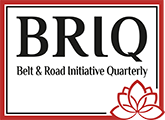
BRIQ (Belt & Road Initiative Quarterly) is currently seeking submissions for a special issue on “Policies for Scientific and Technological Development in the Global South”.
The pivotal role of science, technology and innovation in driving development at every level and domain is indisputable. In Volume 2 Issue 2 of BRIQ, we addressed the theme of “Scientific and Technological Cooperation in the Framework of the Belt and Road Initiative”, where possible mechanisms of cooperation were discussed. In order to foster meaningful international cooperation, it is imperative to establish robust national-level science, technology, and innovation systems.
However, numerous challenges persist for many countries in the Global South, which hinder their ability even to sustain existing scientific and technological activities. These challenges include:
- Lack of industry that needs contract-based research from local institutions
- Inadequate science and technology policies tailored to the country's needs, as well as inadequate implementation of these policies
- The dominance of high-technology products by Big-Tech companies, limiting penetration of smaller players to the market
- Limited research culture and the absence of robust scientific institutions
- The brain drain phenomenon, fueled by the aforementioned factors and economic fluctuations, leading to talent migration from the periphery to the center
- Corruption and nepotism undermining scientific institutions and the lack of a supporting ecosystem
- The proliferation of journals imposing article processing charges, posing additional barriers to high-quality publishing
- The absence of comprehensive national science and technology indicators that are necessary to design and implement policies
- The dominance of Western-centrism and the neoliberal mindset in academia
- In this context, BRIQ invites academic articles, essays and book reviews that address issues related (but not limited) to the following areas:
- Discussions and proposals of science and technology policies aimed at addressing the aforementioned challenges, which may also include analyzing successful examples and drawing lessons from implemented policies/programs, with potential applicability across multiple countries.
- Economic, legislative, and other measures that can facilitate the establishment of a robust innovation ecosystem and exploration of relevant strategies such as technoparks, free-trade areas, specialized institutions, and agencies, particularly focusing on state-driven approaches to ecosystem development.
- Identification of potential avenues to reduce, and possibly reverse, brain drain, ensuring the retention of talented individuals within their home countries.
- Exploration of effective utilization of existing innovation systems to foster development.
- Examination of the challenges related to education in national languages, assessment of the advantages and disadvantages, and the development of scientific nomenclature in these languages.
- Consideration of approaches to nurture science and technology culture through primary, secondary, and high school curricula, fostering interest and competence among students
- Exploration of strategies for optimal allocation and utilization of limited state investments in science and technology, ensuring maximum impact and value
- Analysis of how the Belt and Road Initiative (BRI) can offer opportunities at the national level, including potential synergies and collaborative frameworks for science, technology, and innovation
- Investigation of methodologies for determining research priorities at the national level, including participatory approaches and alignment with national development agendas
- Interpretation and contextualization of paradigms such as "Industry 4.0" within the specific socio-economic conditions of the Global South
- Critical examination of the neoliberal university model and exploration of alternative models that can better serve the needs of science, technology, and innovation in the Global South alternatives.
Submission Guidelines
BRIQ (Belt & Road Initiative Quarterly) is a scholarly journal of international politics, economy, and culture. Belt and Road Initiative Quarterly (BRIQ) features a broad range of content, from academic articles to book reviews, review essays, interviews, news reports, and feature articles.
The Editorial Board can issue calls for papers for special issues and invite authors to contribute manuscripts; however, it also welcomes unsolicited submissions.
Submissions are invited in English or Turkish. All submissions are to include a short biography (150-word limit) and should be sent as Microsoft Word attachments to briq@briqjournal.com . Articles or other content that have been previously published or are under review by other journals will not be considered for publication. BRIQ follows American Psychology Association style (6th edition, https://www.apastyle.org) and uses American English spelling.
BRIQ uses a double-blind review process for all academic articles. Academic articles should be between 5,000 and 9,000 words in length, including abstracts, notes, references, and all other content. Please supply a cover page that includes complete author information, and a fully anonymized manuscript that also contains an abstract (200- word limit) and 5 keywords. Book reviews should not exceed 1,000 words; review essays covering two or more works can be up to 3,000 words. News reports consisting of brief analyses of news developments should not exceed 1,500 words; feature articles combining reporting and analysis can be up to 3,500 words. Please contact the Editorial Board for interview proposals.
